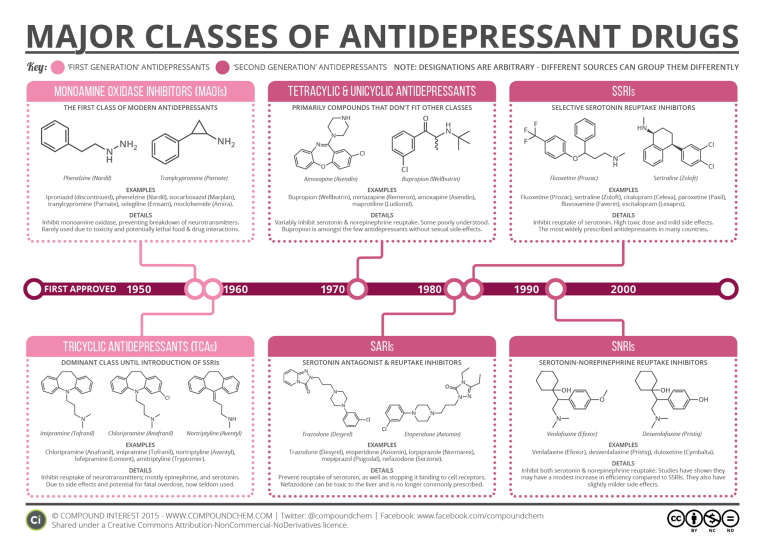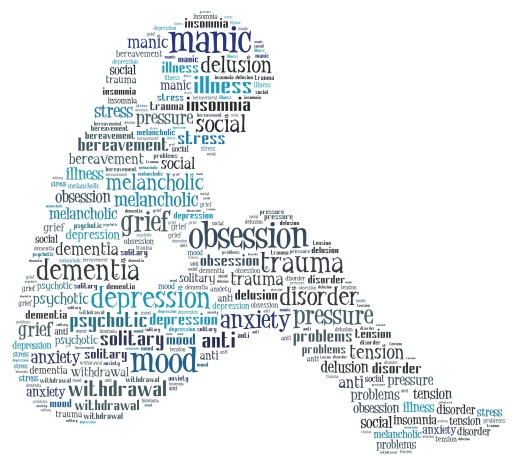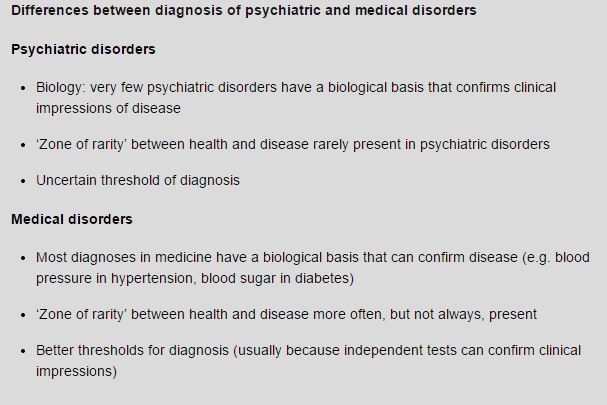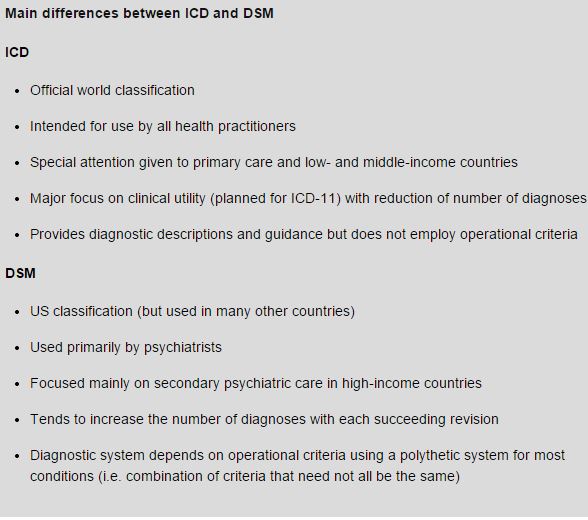Read about ‘a new milestone in non-pharmaceutical treatments for depression’
Categorisation
Dysfunctional behaviour; Comparison between the DSM-5 and The ICD-10
THE DSM -5 and the ICD 10 are the most renowned classifications for mental illness used today. As time goes on there is a ‘convergence’ between the two classification systems, however, there are still some key differences. The Chinese Classification of Mental Disorders-3 is also becoming a significant force but like the earlier versions of the DSM tends to be used primarily in its country of origin. In the article cited below written by Professor Peter Tyrer the notion of a new American project for diagnosis based more on current genetic, neuroscience and behavioural science research called the Research Domain Criteria (RDoC) is discussed.
Tyrer explains ‘The absence of a zone of rarity indicates that the threshold for psychiatric diagnosis is usually arbitrary. When psychiatrists make a decision about a clinical diagnosis they, therefore, have no guidance in deciding on the cut-off point between disease and wellness. Almost all psychiatrists create an artificial boundary between disorder and normality. Increasingly, it has been recognised that a dimensional system of diagnosis is, therefore, superior to a categorical one, but this is only beginning to penetrate into diagnostic systems.
Key question
Does the DSM suffer from ‘Over diagnosis‘ (validity) or does the increase in mental health issues relate to inconsistent diagnosing (reliability) or are people suffering more in a consistently more competitive and difficult world?
These are the subgroups of disorders where the two systems are similar in their main categorisation;
Here are the key differences between the two systems.
‘The above is cited from an article written by Professor Peter Tyrer who is Chair of the ICD-11 Working Group for the Revision of Classification of Personality Disorders and has also been a member of the DSM–ICD Harmonisation Coordination Group. The fascinating article discussing both the history and issues relating to both the current two systems can be viewed here.
Source; Tyrer P (2014) A comparison of DSM and ICD classifications of mental disorder BJPsych Advances The Royal College of Psychiatrists






